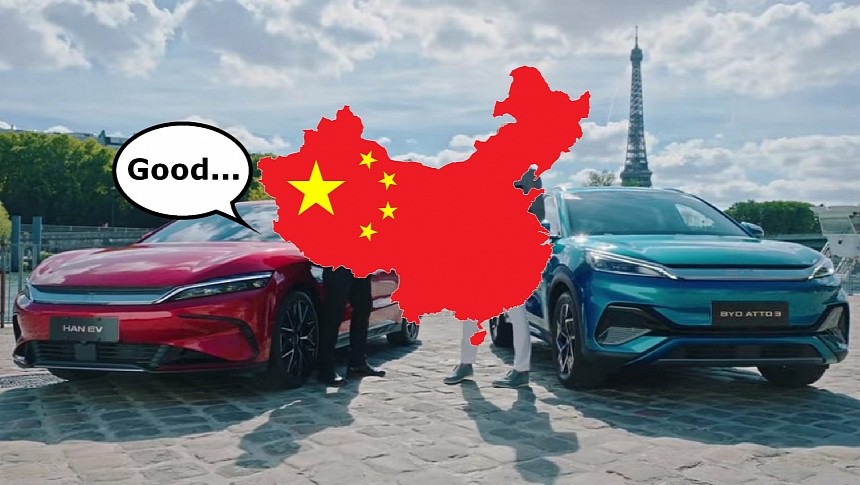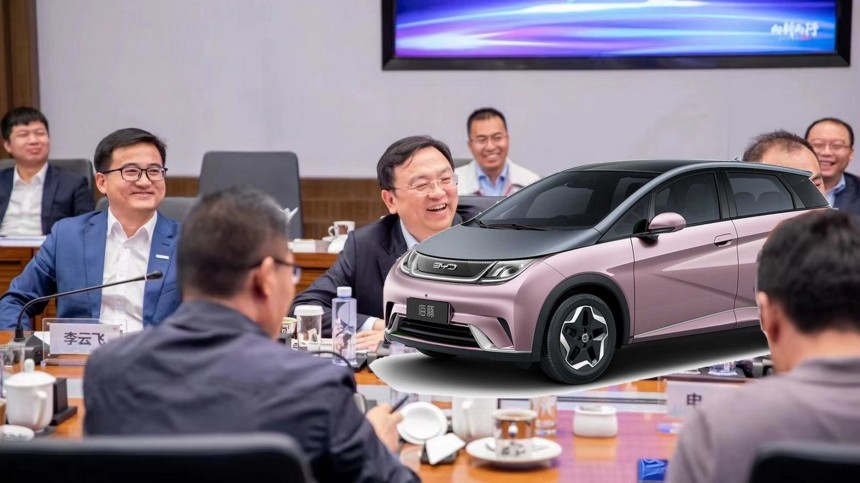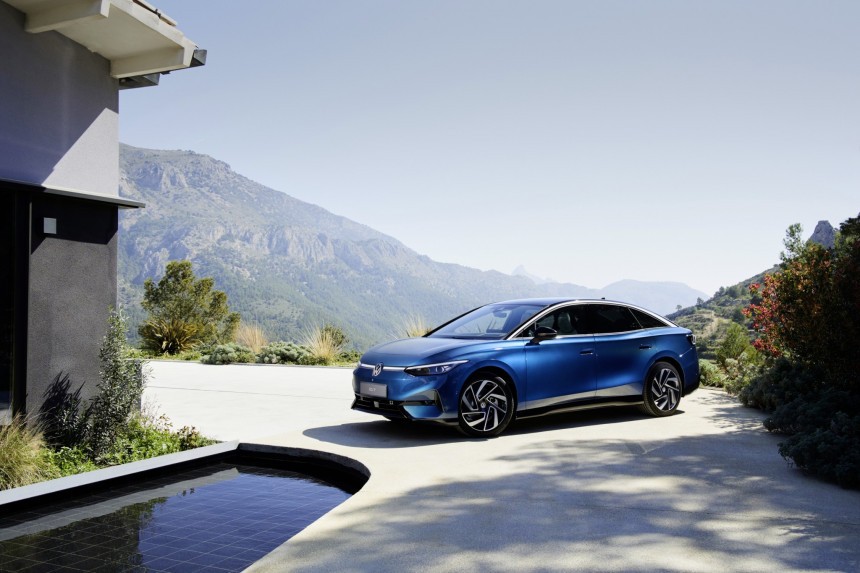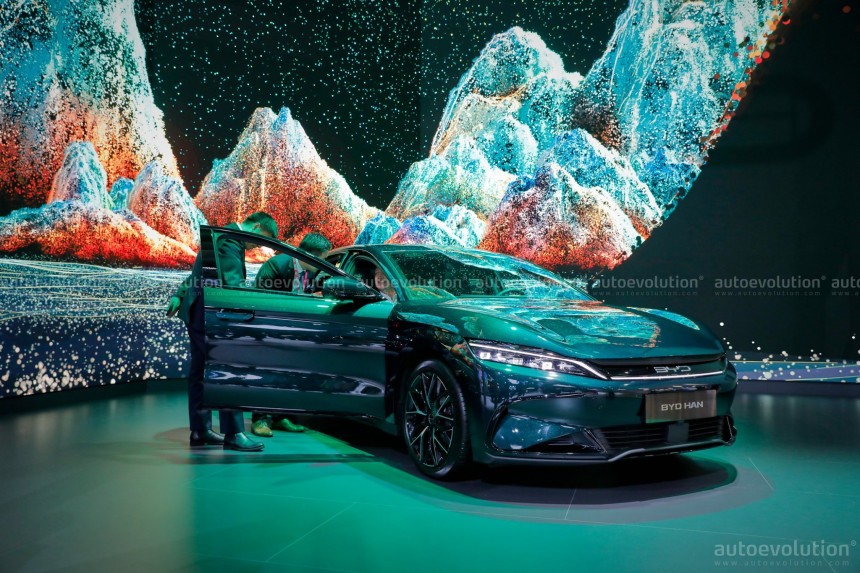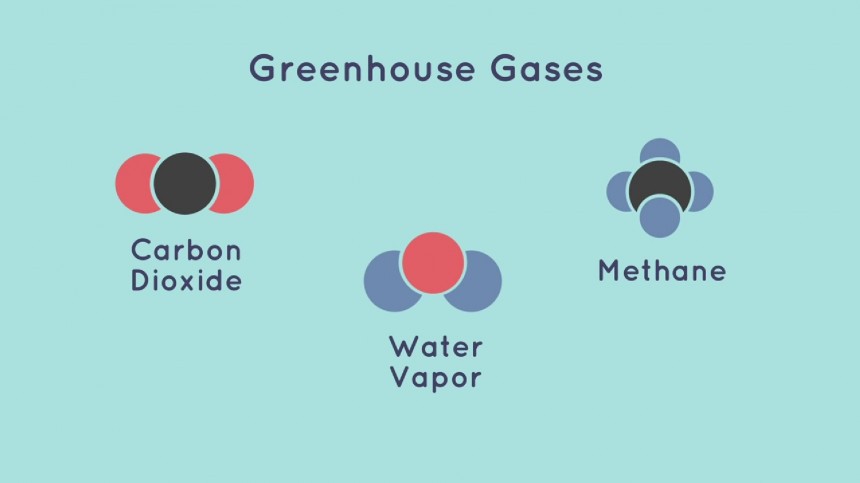Ask any battery electric vehicle (BEV) advocate why the world is adopting vehicles powered by battery packs, and they will tell you that it's due to climate change. The most educated ones will tell you they help keep the air around cities clean, which is a much more credible excuse. What none of them will tell you is that carmakers are turning to BEVs because of China – and that's the best explanation there is at the moment.
It would be weird to imagine that governments worldwide are imposing more restrictive rules for combustion-engined cars because China wants them to do that, right? In retrospect, it also seems weird that Germany willingly gave up on its energy security to buy gas from Russia, but that is what happened anyway. Regardless of the reason for most countries to be following a very convenient path for China, they are doing it, and that's what matters for this story.
One of the possible explanations for that is that China is the world's largest car market. If you have no idea what that means, customers in the US bought 13.73 million new cars in 2022. Those under CCP's rule purchased 23.24 million new automobiles. That means 9.51 million extra passenger vehicles than those sold on the other side of the Pacific Ocean – or 69.3% more. Some projections estimate China may eventually sell 45 million units per year, three times as many vehicles as Americans bought on their best days.
That shows China is now to the automotive world what the US was for decades until very recently. You will remember that Japanese carmakers were only taken seriously when they managed to sell their cars to American customers in large numbers. The same happened to Korean automakers. Those expecting Chinese vehicles to follow the same path missed the point: they do not have to do that to become relevant. Just check what BYD is doing.
After remaining in the Chinese market for years, it is now expanding at an incredible pace into several other markets. Does BYD have to land on American shores to prove its worth? Not at all: It has beaten Volkswagen in its home market. That's something no Chinese company has managed to do since the German carmaker started making cars in the Asian giant in the 1980s. Forget the need to mend Dieselgate or European regulations: this is the reason for Volkswagen's enthusiastic shift into electric cars. And several others are following the same path.
Honda recently told Automotive News it needs to improve its BEV game with new dedicated factories, better batteries, new models, a revised production process, etc. Toyota said the same with its new CEO. Japan is not that much in love with electric cars, but China is: Nikkei Asia said 9 million BEVs should be sold there in 2023, with 9 out of 10 new BEVs coming from Chinese automakers. Toyota developed the bZ3 with BYD's help, and the electric Corolla is already selling like hotcakes there. If that is happening in the world's largest market, imagine how it should be everywhere else.
Norway started its pursuit of electric mobility in the 1990s to help Th!nk, a local brand that did not resist. Nissan followed suit, and then Tesla helped consolidate sales there. European brands started selling BEVs there as well and are now the ones with most of the market share. Tesla is the brand with more sales, but it is largely dependent on the Model Y there – and everywhere else. It was the best-selling vehicle to Norwegian customers in 2022 (17,356 units). Still, the Volkswagen group has sold almost twice as many (32,095) BEVs with all the models it offers there from Audi, Skoda, and Volkswagen itself. But that should not last for long.
BYD and NIO started selling there in 2021, while Xpeng arrived a bit earlier, in 2020. So far, no Chinese brand made it into the 20 best-selling vehicles there, which is easy to explain: all these companies are selling their flagships in Norway. However, BYD's more extensive and more affordable lineup has begun its invasion there with the ATTO 3.
An Allianz Trade report indicates that Chinese automakers are now the most significant risk for European car companies. They could prevent them from earning €7 billion ($7.7 billion at the current exchange rate) in profits by 2030. The main issue is that Chinese cars do not pay an import tax in Europe as high as European cars pay in China. That's something Carlos Tavares complained about in October 2022. Let's face it: all the brands that have created a BEV market in Norway and other markets have worked as Troyan horses for the Chinese expansion.
Apart from being a crucial market to all car brands, China also controls the battery manufacturing chain. Raw materials may be extracted elsewhere, but processing takes place in China, with Chinese companies that dominate the most relevant manufacturing steps. Even if factories are built in Europe or the US, many Chinese companies will own them or earn money from royalties, machinery, and processed raw materials.
This is what the Inflation Reduction Act (IRA) tried to reverse. It may eventually work because the US is still a massive car market, but American legislators should ask two things. First, does it make sense to pursue the same path where China is already so further ahead? Second, doesn't it just make the American market more prone to whatever China wants to sell? I'd suggest another question I have made in a series of articles: what if we are wrong about BEVs?
Will the air in cities be cleaner with them? Sure deal. Will global warming stop? Forget it: transports only account for a low share of greenhouse gas (GHG) emissions, and passenger vehicles represent an even smaller part of those emissions. Will these vehicles be disposable with battery packs that do not last as much as the cars? The answer is yes. Will China benefit from these efforts to make BEVs hegemonic? You can count on that. In fact, it is already happening, even if batteries are not the only path for carbon-neutral passenger vehicles. China sends Western politicians and BEV advocates its warmest regards.
One of the possible explanations for that is that China is the world's largest car market. If you have no idea what that means, customers in the US bought 13.73 million new cars in 2022. Those under CCP's rule purchased 23.24 million new automobiles. That means 9.51 million extra passenger vehicles than those sold on the other side of the Pacific Ocean – or 69.3% more. Some projections estimate China may eventually sell 45 million units per year, three times as many vehicles as Americans bought on their best days.
After remaining in the Chinese market for years, it is now expanding at an incredible pace into several other markets. Does BYD have to land on American shores to prove its worth? Not at all: It has beaten Volkswagen in its home market. That's something no Chinese company has managed to do since the German carmaker started making cars in the Asian giant in the 1980s. Forget the need to mend Dieselgate or European regulations: this is the reason for Volkswagen's enthusiastic shift into electric cars. And several others are following the same path.
Norway started its pursuit of electric mobility in the 1990s to help Th!nk, a local brand that did not resist. Nissan followed suit, and then Tesla helped consolidate sales there. European brands started selling BEVs there as well and are now the ones with most of the market share. Tesla is the brand with more sales, but it is largely dependent on the Model Y there – and everywhere else. It was the best-selling vehicle to Norwegian customers in 2022 (17,356 units). Still, the Volkswagen group has sold almost twice as many (32,095) BEVs with all the models it offers there from Audi, Skoda, and Volkswagen itself. But that should not last for long.
An Allianz Trade report indicates that Chinese automakers are now the most significant risk for European car companies. They could prevent them from earning €7 billion ($7.7 billion at the current exchange rate) in profits by 2030. The main issue is that Chinese cars do not pay an import tax in Europe as high as European cars pay in China. That's something Carlos Tavares complained about in October 2022. Let's face it: all the brands that have created a BEV market in Norway and other markets have worked as Troyan horses for the Chinese expansion.
This is what the Inflation Reduction Act (IRA) tried to reverse. It may eventually work because the US is still a massive car market, but American legislators should ask two things. First, does it make sense to pursue the same path where China is already so further ahead? Second, doesn't it just make the American market more prone to whatever China wants to sell? I'd suggest another question I have made in a series of articles: what if we are wrong about BEVs?
